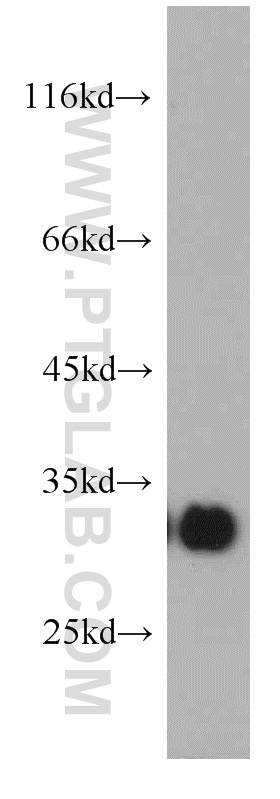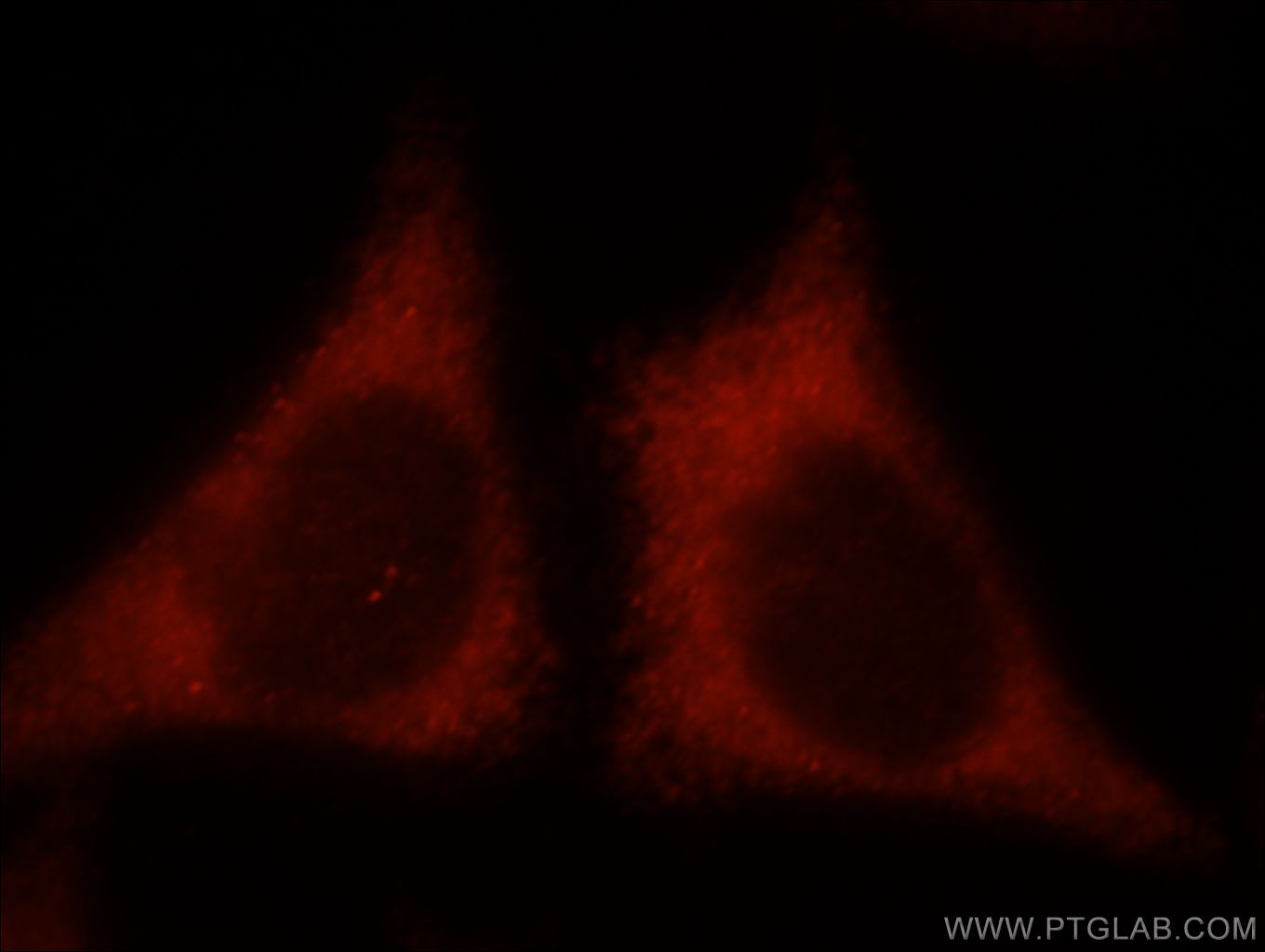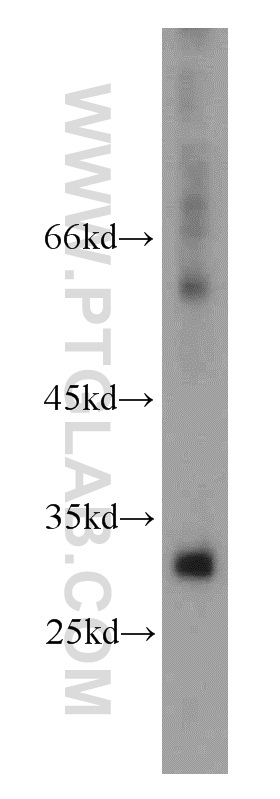验证数据展示
经过测试的应用
| Positive WB detected in | HL-60 cells, Jurkat cells |
| Positive IF/ICC detected in | HepG2 cells |
推荐稀释比
| 应用 | 推荐稀释比 |
|---|---|
| Western Blot (WB) | WB : 1:1000-1:4000 |
| Immunofluorescence (IF)/ICC | IF/ICC : 1:10-1:100 |
| It is recommended that this reagent should be titrated in each testing system to obtain optimal results. | |
| Sample-dependent, Check data in validation data gallery. | |
产品信息
21152-1-AP targets KIR2DS4 in WB, IF/ICC, ELISA applications and shows reactivity with human samples.
| 经测试应用 | WB, IF/ICC, ELISA Application Description |
| 经测试反应性 | human |
| 免疫原 | KIR2DS4 fusion protein Ag15711 种属同源性预测 |
| 宿主/亚型 | Rabbit / IgG |
| 抗体类别 | Polyclonal |
| 产品类型 | Antibody |
| 全称 | killer cell immunoglobulin-like receptor, two domains, short cytoplasmic tail, 4 |
| 别名 | KKA3, KIR412, KIR1D, Killer cell immunoglobulin-like receptor 2DS4, CD158I |
| 计算分子量 | 304 aa, 34 kDa |
| 观测分子量 | 33 kDa |
| GenBank蛋白编号 | BC096694 |
| 基因名称 | KIR2DS4 |
| Gene ID (NCBI) | 3809 |
| RRID | AB_10732956 |
| 偶联类型 | Unconjugated |
| 形式 | Liquid |
| 纯化方式 | Antigen affinity purification |
| UNIPROT ID | P43632 |
| 储存缓冲液 | PBS with 0.02% sodium azide and 50% glycerol , pH 7.3 |
| 储存条件 | Store at -20°C. Stable for one year after shipment. Aliquoting is unnecessary for -20oC storage. |
背景介绍
KIR2DS4 (also known as CD158i) is a member of the killer cell immunoglobulin-like receptor (KIR) family. KIRs are transmembrane glycoproteins expressed by natural killer cells and subsets of T cells. KIRs are mainly involved in inhibiting NK killing (inhibitory KIRs) via interaction with MHC class I molecules. KIR2DS4 has been reported to be an activating KIR and recognize the HLA-Cw4 protein.
实验方案
| Product Specific Protocols | |
|---|---|
| WB protocol for KIR2DS4 antibody 21152-1-AP | Download protocol |
| IF protocol for KIR2DS4 antibody 21152-1-AP | Download protocol |
| Standard Protocols | |
|---|---|
| Click here to view our Standard Protocols |



